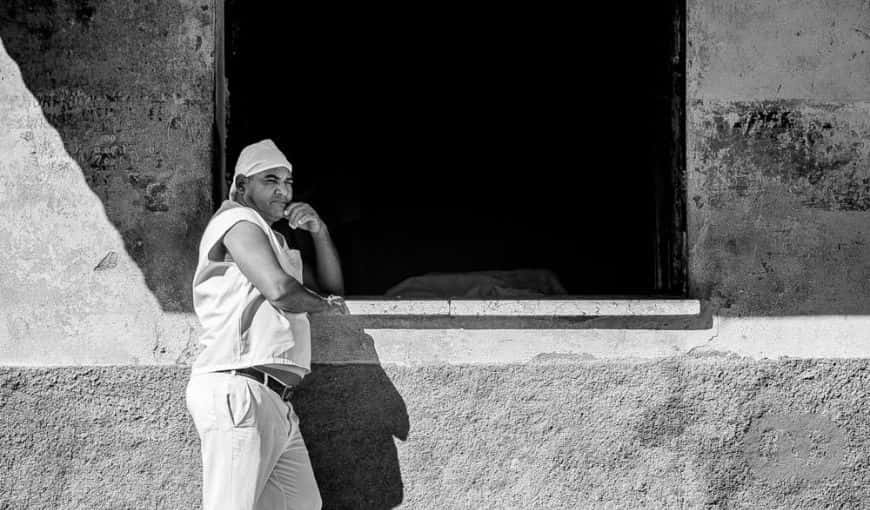The rapid decline of everyday life in Cuba is no secret to anyone, nor is it any news. We received this year with political tensions, economic shortages, social stress and cultural changes.
As a precursor, the year that just ended combined reforms (without any promising results) with the US’ attack against the Cuban government and people, and a pandemic that has made the capitalist global crisis worse. These three factors have put Cuba on the brink.
A new calendar begins, marked by warning signs. We are at a point of no return. Two key points have been exhausted. Socialism’s state-centered and bureaucratized model, and the blank check the Cuban people gave those leading reforms.
The new year carries the burden of piled up demands and is tight for time. It might sound like a cliche, but it’s not just another year. Reforms launched over a decade ago, had the Cuban people enthusiastic, willing and optimistic. Different drafts that came and went had the Cuban people’s voice, contributions, trust and best efforts. Debates and passing the new Constitution closed a cycle of involvement and expectations. It was just a matter of reaping the fruits of this effort and the social pact that was made.
The reforms package was legitimate enough when it was set out [first in 2011]. The debate about the Guidelines, Conceptualization of the socialist model, development plan and Constitution, attested to this. However, reforms came to a standstill, they contradicted themselves, facing challenges and setbacks. The concrete and tangible results of this process weren’t what the Cuban people had expected them to be. Their initial enthusiasm has now been subverted into discouragement and uncertainty.
“Yes but no”, “now isn’t the right time”, “without haste, but without stopping” have been the delaying slogans of these changes that, I repeat, had enough popular support, and were even voted by population at one point.
Turning to a literal understanding of democracy, we can describe this process as the following: the leader, which is the sovereign people, ordered that these reforms to go ahead. However, those who were ordered to implement them put them off, convoluting and delaying them. Should these leaders be revoked of their position?
Alongside the US blockade and the COVID-19 pandemic, this attitude has led to the rapid decline of everyday life. Low production and consumption levels, shortages and a lack of goods and services put a higher number of people in a vulnerable situation. It also led to wider margins in social class structure inequality. Statistics back up the urgency needed to implement these reforms, even now in the worst-case scenario.
I can’t remember another year that has begun with such anxiety, since 1994. This will be a time of profound change. Not only in moral urgency, which would be reason enough. But especially because of growing social tensions, institutions’ legitimacy and leadership being worn down. Signs of social polarization are growingly visible on our streets.
It’s hard to talk about this new year in Cuba without getting heated up. It’s pretty much impossible to look our reality in the face and not strike a position. Political agendas need to be adjusted in the short-term. Questions need to be adapted to our current context, so answers are focused on the present.
From this standpoint, I’d like to ask: what will be the fate of the revolutionary project? This revolutionary project of justice, dignity and sovereignty? Not the abstract, poetical and insubstantial fate. I’m talking about its fate as a political project, as a concrete agenda, as a way to really turn about our reality. When I say political project, I’m talking about commitment and decision-making.
Two key points need to feature at the top of the Cuban agenda this year: bread and hope.
Bread in its tangible and symbolic form. As a need to reproduce life in material terms. Nourishing life as a community. The everyday pillar of stability. A daily routine without haste, delays and suspicion. Bread as a symbol of sovereignty.
Hope as a dream come true. As a recreation of ideals and its projects. Illusion, motivation, a wish to be in Cuba. The synonym of certainty and sustainability. Reconfiguration and commitment to a paradigm of an inclusive nation. Hope that looks at politics with warmth.
Bread offered on the negotiations table, a celebration of understanding, our food, a sign of common wellbeing. Hope without labels, defamation, insults, hate or violence. Hope in a shared sense, that is uttered with different words.
Bread and hope as a fairytale of socialism that shares power, production, knowledge, dignity and rights. The chance to reach proper justice and freedom. Democratic socialism backed by the people. A Republic of the working class. A safeguard of social control on bureaucracy and capitalists.
Let’s push for the country we want in 2021, with our passions founded on faith, ethics and dignifying politics. Let’s talk about the Revolution and Imperialism for what they really are. Let’s hold up cooperation and solidarity as the pillars of social order. Let’s talk about bread and hope as the most pressing political agenda for a just and sovereign nation.






